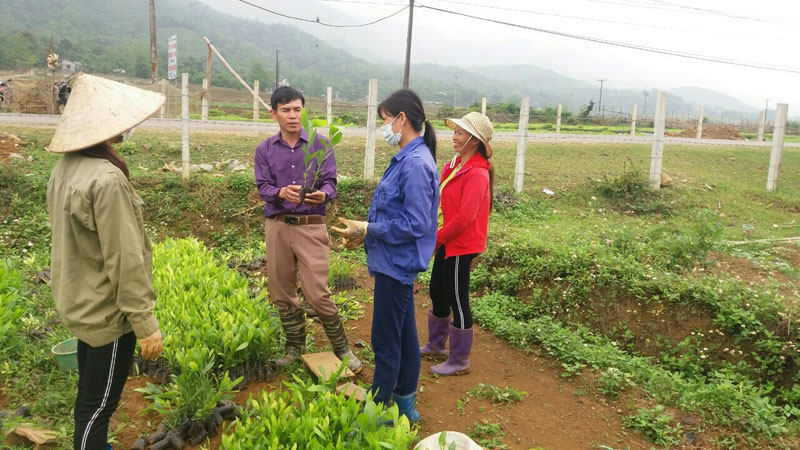


The nursery of Mr. Quach Van Canh’s family at
Ma hamlet, Cuoi Ha commune, providing the acacia seedlings has become a
familiar address for many farmers inside and outside the commune.

Mr. Quach Van Canh at Ma hamlet, Cuoi Ha
commune (Kim Boi district) tested the quality of acacia seedlings before
exporting.
Before implementing the nursery model, Mr.
Canh’s family mainly cultivated rice and corns but their productivity and
economic efficiency were very low. It was realized that the movements of
planting forest in the commune as well as in the district have developed
strongly while the supply of seedlings was weak, and the farmers had to
purchase seeds from other places for double price but the survival rate of
trees was low. In 2013, he borrowed 20 million VND from the District Bank for
Social Policies in order to invest in acacia nursery with the area of over 1000
m2. In the first year, Mr. Canh planted one kilo of Acacia
auriculiformis and Acacia mangium. Because of the proper application of
techniques and being hard working to monitor each tree, he got incredible
earnings from over 300 thousand seedlings which have been sold out with the
average price of 400 VND per tree. Excepting for all expenditures, the net
profit was about 35 million VND. Perceiving the high economic efficiency from
the acacia nursery, up to the present, his family has expanded the area by 2000
m2 as well as increased nearly 1 million trees per years. Apart from
all expenditures, his family earns approximately 100 million VND annually.
Because of the nursery, Mr. Canh’s family has currently had a stable life and his
children have sufficient conditions to study. Not only pioneering in economic
development and enriching legitimately, but Mr. Canh also created regular jobs
for five workers in the hamlet with the average income of three million VND per
person per month.